February 22, 2023 | Austin, TX
Speaker Bios
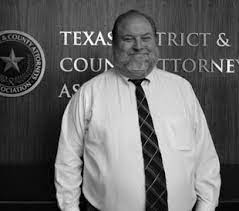 Clay Abbott, Texas Traffic Safety Resource Prosecutor, Texas District & County Attorneys Association
Clay Abbott, Texas Traffic Safety Resource Prosecutor, Texas District & County Attorneys Association
Clay Abbott is the DWI Resource Prosecutor with the Texas District and County Attorneys Association. He graduated from Lubbock Christian University in 1984 with a BA in History, magna cum laude. He graduated from the Texas Tech School of Law in 1986 with a JD, cum laude. He was inducted into the Order of the Coif in 1987. From 1987 until 1990 Clay was with the Lubbock County Criminal District Attorney’s Office, where he left as the Trial Chief of the 140th District Court. He was in solo practice in Lubbock until 1995 when he rejoined the Lubbock CDA as Chief Deputy. Clay served as an adjunct professor at the Texas Tech School of Law from 1990-1999. In 2000 he became general counsel at the Texas Municipal Court’s Education Center. He left judicial education to join TDCAA in 2004. He has trained thousands of Texas Peace Officers and Prosecutors each year in that job. Clay has trained on DWI and Ethics topics at the National Advocacy College and for NDAA. He has also trained prosecutors in DWI, prosecutor ethics, or at train the Trainers in 30 of the 50 states.
 Christine Adams, Assistant Research Scientist, Texas A&M Transportation Institute
Christine Adams, Assistant Research Scientist, Texas A&M Transportation Institute
Christine Adams is an assistant research scientist for the Center for Alcohol and Drug Education Studies (CADES) at the Texas A&M Transportation Institute. Her primary role is serving as the administrator for the Texas Impaired Driving Task Force, in partnership with the Texas Department of Transportation (TxDOT). Ms. Adams also serves as Co-Principal Investigator on a marijuana educational grant focused on traffic safety. She received her Bachelor of Business Administration from the University of North Texas, Denton and her Master of Business Administration from the University of Nevada, Reno.
Prior to joining CADES, Ms. Adams served as the vice chairperson for the Northern Nevada DUI Task Force for seven years, where she was presented with the State Impaired Driving Abatement Award for her work on the Nevada Strategic Highway Safety Plan and her advocacy at the Nevada legislature.
Ms. Adams’ knowledge and experience include prevention of underage access to alcohol, server/seller compliance, building community partnerships, public education campaigns, effective marijuana strategies and victim services. She has spent 14 years working to reduce harm caused by substance use in communities and on roadways.
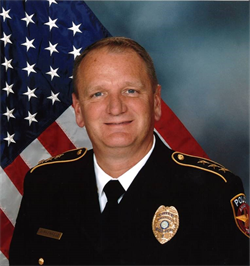 Chief Martin Birkenfeld, Chief of Police, Amarillo Police Department
Chief Martin Birkenfeld, Chief of Police, Amarillo Police Department
Chief Martin Birkenfeld has lived in Amarillo his entire life and has been an officer at the Amarillo Police Department since November of 1990. Prior to working at the department, he spent three years at the Potter County Sheriff’s Office.
During his law enforcement career, Chief Birkenfeld has worked as a jailor, a patrol officer, a motorcycle officer, and a hostage negotiator. Over the last twenty-three years, he has served in supervisory and command positions including patrol, records, criminal investigation, and as Chief of Police since May 2020. Chief Birkenfeld has a Master Peace Officer License and is a certified instructor through the Texas Commission on Law Enforcement.
Chief Birkenfeld earned a master’s degree in Security Studies from the Center for Homeland Defense and Security – Naval Postgraduate School. He also has master’s degree in Business Administration from West Texas A+M University. He is a graduate of the 266th session of the FBI National Academy.
Chief Birkenfeld has been a member of the Rotary Club of Amarillo since 2015. He is also on the Potter-Randall Emergency Management Advisory Committee, the board of managers for the Potter-Randall 911 Emergency Communications District, and the board of governors for Northwest Texas Healthcare Systems in Amarillo. He was recently selected to serve on the executive board for the Caruth Police Institute.
Chief Birkenfeld has been married to Heather for twelve years. Together they enjoy various entrepreneurial projects and raising small animals. They have three sons and two grandchildren.
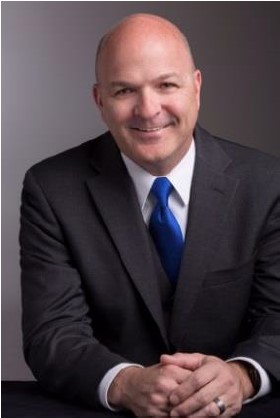
Shannon Bryant, Nevada Traffic Safety Resource Prosecutor, Washoe County Deputy District Attorney
Shannon is the Traffic Safety Resource Prosecutor for the State of Nevada and a Deputy District Attorney with the Washoe County District Attorney’s Office. He has over 14 years of prosecution experience, including approximately 4 years as an Assistant United States Attorney. As Nevada’s TSRP, Shannon trains law enforcement personnel and prosecutors across the state in all traffic safety matters, with an emphasis on impaired driving cases. Shannon is a POST- certified Standardized Field Sobriety Test Instructor, an Advanced Roadside Impaired Driving Enforcement (ARIDE) Instructor, and the first and only prosecutor in Nevada to be certified as a Drug Recognition Expert (DRE) and DRE Instructor by International Association of Chiefs of Police. Shannon is also a regular instructor at the Nevada POST Academy in Carson City and the Northern Nevada Law Enforcement Academy in Reno.
Prior to becoming a prosecutor, Shannon clerked and was a criminal division staff attorney the Supreme Court of Nevada. He then spent several years practicing in civil litigation for two established law firms in the state as well as building his own successful law practice.
Shannon is a graduate of Gonzaga University School of Law and the University of Maryland at College Park, and is a proud veteran of the United States Marine Corps.
Jim Camp, Senior Attorney, National Traffic Law Center
Jim Camp is Senior Attorney with the National Traffic Law Center, focusing on Commercial Driver’s License (CDL) related topics.
A nationally recognized authority on traffic safety, CDL Masking, trial advocacy, law enforcement and prosecution issues, he is an in demand motivational and subject matter expert speaker having practiced law for more than 40 years most of it as a trial lawyer. Born and raised in East Central Wisconsin, Jim was elected to 9 terms as District Attorney there, and served 9 years as Assistant District Attorney General and Traffic Safety Resource Prosecutor in Tennessee. While TSRP in Tennessee Jim’s office was at the Tennessee Highway Patrol Training Center where he taught in-service and cadet school classes and acted as a liaison with the Highway Patrol. He was also one of the charter founders and instructors of the Tennessee District Attorney General’s Trial Advocacy School held yearly at the University of Memphis Law School. Jim has authored numerous articles on impaired driving, CDL masking and trial advocacy. Over twenty-five thousand have heard him speak.
Jim is a recipient of the Tennessee Governors Highway Safety Office Lifesavers Award, the Tennessee District Attorney Generals Conference President’s Award, and the Kevin E. Quinlan National Excellence in Traffic Safety Award. He is past board member of the Wisconsin Academy of Trial Lawyers, past board member and state president of the Tennessee Mothers Against Drunk Driving (MADD) Board of Directors and is currently a member of the MADD National Law Enforcement Committee.
He resides outside of Nashville, TN, is a lifelong drummer, enthusiastic guitar picker, father of two and is the world’s greatest grandpa to his four grandchildren.
 Jessica Cance, PhD, MPH Senior Research Public Health Analyst, RTI
Jessica Cance, PhD, MPH Senior Research Public Health Analyst, RTI
Jessica Cance, PhD, MPH, is a Senior Research Public Health Analyst in RTI’s Substance Use, Prevention, Evaluation, and Research Program with over 20 years of research and practice experience, spanning academia, nonprofit research, and state government. Her work focuses on addressing substance use (including alcohol, cannabis, opioids, prescription drug misuse, cocaine, and methamphetamine) and related harms from a public health perspective. Dr. Cance also has experience in suicide-related outcomes, sexual health and reproductive justice, and violence prevention. Before joining RTI in 2019, Dr. Cance worked for four years in the Texas state government. While at the Texas Health and Human Services Commission, she provided technical assistance and contract oversight to community agencies funded to build coalitions and deliver substance use and misuse prevention programming throughout the state. She was also responsible for the development and execution of the state’s strategy related to opioid misuse prevention, which included active partnerships and contracts with community-based organizations, health care systems, law enforcement, universities, and other key stakeholders. As the Agency Analytics Unit Manager at the Texas Department of State Health Services (DSHS), Dr. Cance oversaw the analysis and dissemination of public health administrative data. She led the agency’s efforts to enhance the state’s capacity to rapidly respond to the opioid overdose crisis through improved data collection and served as the surveillance lead for DSHS’ statewide strategic plan to address substance use from a public health perspective. Dr. Cance has led and contributed to epidemiological research; program implementation and evaluation projects; and coalition building supported by state, federal, and foundation funding.
 Carlos Champion, Texas DRE State Coordinator, Texas Drug Recognition Expert Program
Carlos Champion, Texas DRE State Coordinator, Texas Drug Recognition Expert Program
Before becoming Texas DRE State Coordinator, Carlos was a twenty-four year veteran with the Edinburg Police Department, retiring honorably at the rank of lieutenant and taking a position with the Texas LEADRS Program. At Edinburg PD, he was assigned to the Training Division where he served as the agency’s training coordinator and field training program commander. Carlos was the Department’s principal instructor for Standardized Field Sobriety Testing, DWI investigation and report writing, mobile video, and radar speed measurement. He coordinated and supervised DWI STEP operations for the department. He was also the department’s DRE Agency Coordinator.
Carlos became a Standardized Field Sobriety Testing (SFST) Instructor in 2001, and was the lead SFST instructor for the Lower Rio Grande Valley Development Council Regional Police Academies in Edinburg, Harlingen, Mission, and Hidalgo and instructed at various other academies and departments across south Texas. He also taught extensive SFST Refresher courses throughout the state. In addition to his SFST Instructor experience, he is a Drug Recognition Expert Instructor and Course Manager and Advanced Roadside Impaired Driving Enforcement (ARIDE) instructor. He has taught thousands of officers in impaired driving enforcement topic and qualified as an expert witness in Hidalgo County courts. He is a member of the International Association of Chiefs of Police and an IACP DRE Section member as well.
 David Elizalde, Founder, Andrea’s Project
David Elizalde, Founder, Andrea’s Project
David is the founder of nonprofit, Andrea’s Project, and father of Andrea Elizalde. He owns three businesses in Amarillo. His desire for his city and community is to see true cultural change in how people view impaired driving. #ItsJustThatEasy to not drink and drive.
 James C. Fell, Principal Research Scientist, NORC at the University of Chicago
James C. Fell, Principal Research Scientist, NORC at the University of Chicago
- BS, Industrial Engineering, State University of New York at Buffalo
- MS, Human Factors Engineering, State University of New York at Buffalo
James C. Fell is a principal research scientist at NORC at the University of Chicago in the Economics, Justice, and Society department. He joined NORC in February, 2016. His areas of expertise include behavioral studies in traffic safety, evaluating impaired driving countermeasures, determining the effectiveness of various alcohol policies and safety issues associated with the legalization of marijuana in the states.
Before joining NORC, Fell was a senior research scientist at the Pacific Institute for Research and Evaluation (PIRE) in Calverton, Maryland, from 2001 to 2016, where he worked on projects which included evaluating the effectiveness of enforcement programs, particularly highly visible, highly publicized and frequent sobriety checkpoints, in reducing impaired driving. Other projects included research on drivers arrested for driving while intoxicated (DWI), a project on increasing safety belt usage by teens, and developing various resource documents on sanctions for drivers convicted of DWI.
Prior to joining PIRE, Fell worked with Star Mountain, Inc. in 2000 as the Director of Human Performance Technology and before that spent thirty years at the National Highway Traffic Safety Administration (1969-1999) where he held a series of positions including Chief, Research and Evaluation Division (GS-15). Read full bio here.
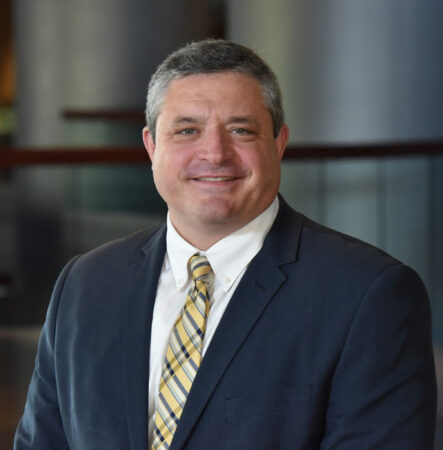
Darrin Grondel, Senior Vice President of Traffic Safety, Responsibility.org
Dr. Grondel’s career began when he joined the Washington State Patrol as a trooper in 1992, where was promoted to sergeant, lieutenant and ultimately captain before retiring in 2017.
During his time as captain, Governor Christine Gregoire appointed Dr. Grondel as director of the Washington Traffic Safety Commission (WTSC) in 2012. He was reappointed by Governor Inslee in 2013.
Under his leadership, the WTSC led the passage of multiple traffic safety laws including impaired driving policies and distracted driving laws that resulted in improved enforcement and effectiveness. Dr. Grondel also directed Washington’s efforts to measure the effect of marijuana legalization on impaired driving. The data, programs, public education, research and policies he implemented to prevent drug-impaired driving and multi-substance impaired driving have provided a national model to address these emerging issues.
As director of the WTSC, Dr. Grondel served as chair of the Washington Impaired Driving Advisory Council, the Traffic Records Committee, the Tribal Traffic Safety Advisory Board, and the Washington State Autonomous Vehicle Work Group.
At the national level, Dr. Grondel served on the executive committee of the Governors Highway Safety Association (GHSA) Board of Directors, first as secretary and then as its chairman. He also serves on the Drug Evaluation and Classification Technical Advisory Panel, the Highway Safety Committee for the International Association of Chiefs of Police (IACP) and the National Sheriffs’ Association’s Traffic Safety Committee. Dr. Grondel has contributed to numerous national projects related to drug-impaired driving, autonomous vehicles, and national strategic efforts to reduce traffic fatalities to zero.
Dr. Grondel has a doctorate of organizational leadership from Brandman University, a master of public administration from The Evergreen State College and a bachelor of political science from Brigham Young University. He now lives in Southern Utah with his wife and children.
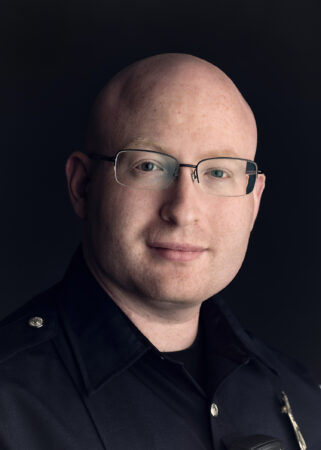 Thomas Heller, Detective, Seattle Police Department
Thomas Heller, Detective, Seattle Police Department
Tom Heller received a B.A. in Psychology in 2007 from Brandeis University. He joined the Seattle Police Department later that year. After 12 years in patrol, he became a Field Training Coordinator in the department’s Education and Training Section.
Tom is currently a Detective in the Seattle Police Department’s Force Investigation Team. He has been a Drug Recognition Expert since 2011, and a DRE Instructor since 2016.
 Nicole Holt, Chief Executive Officer, Texans for Safe and Drug-free Youth
Nicole Holt, Chief Executive Officer, Texans for Safe and Drug-free Youth
Nicole Holt serves as CEO of Texans for Safe and Drug-Free Youth (TxSDY)—a statewide non-profit dedicated to creating healthier and safer communities where alcohol, tobacco, and other drug use have no place in the lives of youth. During Nicole’s more than 15 years in this role, TxSDY has greatly expanded its capacity to train and support coalitions across Texas and honed its ability to advocate for policy change at the state and local levels. Nicole began her career working for National Wildlife Federation’s Campus Ecology Program. At 24, she built a national program for faith-based college students to address environmental issues, including an annual “Rescue God’s Creation” lobby day in D.C. – the first of its kind. She has also worked on presidential campaigns. She is former Chair, and a founding member, of the U.S. Alcohol Policy Alliance, a graduate of Leadership Women Texas and Leadership Women America. She serves on the State Impaired Driving Taskforce and is a member of the Legislative and Drug-Impaired Driving committees.
The first in her family to graduate from college and a 6th generation Texan, Nicole was a Presidential Scholar at Grayson County Community College, graduating with an Associates of Science. Nicole went on to receive a Bachelor of Arts with an emphasis on poverty and environmental policy from Luther College in Decorah, Iowa.
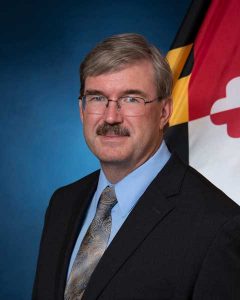 Timothy Kerns, Director, Maryland Highway Safety Office
Timothy Kerns, Director, Maryland Highway Safety Office
Timothy (Tim) Kerns, Ph.D. is the Director of MDOT MVA’s Highway Safety Office. He previously spent 29 years as a research associate/epidemiologist with the University of Maryland’s National Study Center for Trauma and EMS (NSC). While at the NSC, he helped to develop and monitor Maryland’s Occupant Protection Survey and served as program manager for the development of the State’s Crash Outcome Data Evaluation System (CODES) and the Crash Injury Research and Engineering Network (CIREN). He has served on a variety of highway safety program assessments covering areas such as traffic records, occupant protection, and pedestrian/bicycle safety.
Dr. Kerns has served as a member of the Board of Directors for the Mid-Atlantic Foundation for Safety and Education and the Maryland Division of the American Trauma Society and is past President of the Association of Transportation Safety Information Professionals (ATSIP).
Dr. Kerns received a Bachelor’s Degree in Natural Science from Johns Hopkins University, a Master’s Degree in Epidemiology and Emergency Health Services from the University of Maryland, and a PhD in Epidemiology from the University of Maryland Baltimore.
 Jen Knudsen, Traffic Safety Resource Prosecutor, Colorado District Attorneys’ Council (CDAC)
Jen Knudsen, Traffic Safety Resource Prosecutor, Colorado District Attorneys’ Council (CDAC)
With nearly two decades of experience in traffic safety and prosecution, Jennifer Knudsen took on the role of managing the TSRP program for CDAC in 2014. Her role includes providing training, legal research and technical assistance for numerous stakeholders throughout the criminal justice system. Jennifer was previously a judicial law clerk in the 1st Judicial District, a deputy district attorney in Colorado’s 18th Judicial District and served under the Arvada City Attorney and the Colorado Attorney General.
LaViza Matthews, Traffic Safety Specialist, TxDOT
LaViza Matthews has served as a TxDOT Traffic Safety Specialist since 2016 in the Amarillo District. She works with Andrea’s Project coalition. She assists in organizing events, bringing presentations as well as bringing in K/A crash info for impaired driving. She is the TxDOT Rep for the State Child Fatality Review Board.
She is a Child Passenger Safety Instructor, a Smith System Instructor, and a presenter for risky driving issues across the top 17 counties for the State, including Drowsy, Impaired, Distracted, Drugged, Ped and Bike crashes and Teen Drivers Older Drivers. She leads the Vision Zero Amarillo District Coalition.
LaViza is also a certified victim advocate trainer for victims of domestic violence and sexual assault and most currently, Nationally certified as NOVA Sex Trafficking Victim Assistance and an OSHA Certified Trainer in Human Trafficking.
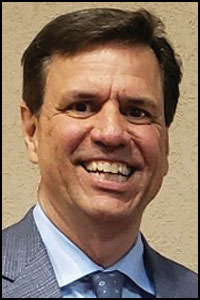 Ken Stecker, Traffic Safety Resource Prosecutor, Prosecuting Attorneys Association of Michigan
Ken Stecker, Traffic Safety Resource Prosecutor, Prosecuting Attorneys Association of Michigan
Ken has been Michigan’s Traffic Safety Resource Prosecutor (TSRP) since 2008. Prior to joining PAAM, he spent over ten years as a trial prosecutor—three years with Kalamazoo County and eight with Branch County. He then went on to work as the Chief Assistant Prosecuting Attorney for Branch County for eight years. Under Ken’s leadership, the Michigan TSTP has gained national prominence and become a role model for other states. In 2015, Ken received the National Highway Traffic Safety Administration’s (NHTSA) Public Service Award for his outstanding service in providing expert legal advice and training resources to Michigan’s criminal justice community. Ken is a graduate of Loyola Marymount University and the University of Detroit School of Law.
 Cody Stewart, Associate Transportation Researcher, Texas A&M Transportation Institute
Cody Stewart, Associate Transportation Researcher, Texas A&M Transportation Institute
Cody E. Stewart is an Associate Transportation Researcher at the Texas A&M Transportation Institute. Mr. Stewart has over 12 years of experience in risk management and traffic safety at the Institute. He received his Bachelor of Business Administration from Sam Houston State University and his Executive Master of Public Service and Administration from Texas A&M University.
Mr. Stewart was included as a subject matter expert to provide testimony to the Impaired Driving Program Assessment team assembled by the National Highway Traffic Safety Administration (NHTSA) for the 2022 State of Texas Impaired Driving Program Assessment for his work in alcohol-impaired driving countermeasures. His work on prescription drugged-impaired driving in Texas as a co-author has also been published in the Texas Public Health Journal.
Furthermore, Mr. Stewart’s current research includes serving as the Principal Investigator on TxDOT’s sole cannabis-specific traffic safety grant. He also serves as the Principal Investigator on an ignition interlock training and evaluation grant, and a motorcycle training, licensing, and analysis grant. Previously, Mr. Stewart’s work included a feasibility study of an all-offender driving while intoxicated tracking system for Texas, comprehensive motorcycle crash analyses, blood alcohol concentration reporting, and training and technical assistance with Texas’ Crash Reporting and Analysis for Safer Highways system.
 Joanne Thomka, Director, National Traffic Law Center
Joanne Thomka, Director, National Traffic Law Center
Joanne Thomka is the Director of the National Traffic Law Center of the National District Attorneys Association in Arlington, Virginia. Prior to joining NDAA, Mrs. Thomka was a Senior Assistant District Attorney for the Onondaga County District Attorney’s Office in Syracuse, New York. She was the Bureau Chief of the DWI Unit. Mrs. Thomka also previously served as a Program Counsel at the National Association of Attorneys General (NAAG).
Mrs. Thomka is a member of several committees which pertain to traffic safety: Transportation Research Board’s Impairment in Transportation Committee, National Sheriff’s Association’s Traffic Safety Committee, Highway Safety Coalition, and the Traffic Injury Research Foundation’s DWI Working Group. She is also the recipient of the 2013 J. Stannard Baker Award, presented by the National Sheriffs’ Association and the National Highway Traffic Safety Administration in Recognition for Outstanding Achievement in Highway Safety and a 2016 Public Service Award from the National Highway Traffic Safety Administration for
protecting communities and enhancing traffic safety through legal information and training to the Nation’s criminal justice community.
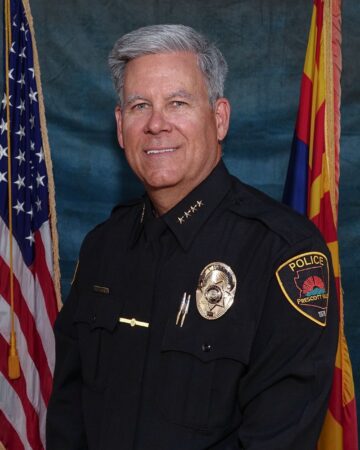 Chief Robert Ticer, Prescott Valley Police Department, Arizona
Chief Robert Ticer, Prescott Valley Police Department, Arizona
Chief Robert Ticer is an Arizona native, having the good fortune to grow up in Yavapai County, an area he calls home. In 1985, after graduating high school in Prescott, Chief Ticer enlisted in the United States Air Force, where he served in the Security Police with assignments in Florida, South Korea, and the Mojave Desert of California. Following his honorable discharge, the chief was hired by the Prescott Police Department where he served for one year before laterally transferring to the Arizona Department of Public Safety (DPS). During his career at DPS, Chief Ticer completed assignments in the Highway Patrol Division, Vehicle Theft Task Force, Public Information Office, Legislative Liaison, National Highway Traffic Safety Administration, and Gang Task Force (GIITEM).
After nearly 21-years in Arizona law enforcement, retiring at the rank of Major with DPS, Robert served as Chief of Police for two Colorado municipalities totaling 12-years. In April 2022, Chief Ticer came home and was hired as the Police Chief in Prescott Valley, where he is committed to ensuring that the Police Department serves the community at the highest and most integrity-based level with goals to reduce crime/fear of crime, improve traffic safety, and provide community education.
Robert holds a Bachelor of Science Degree and a Master’s of Education Degree from Northern Arizona University, is a graduate of the Northwestern University School of Police Staff and Command, the FBI National Academy, and the Police Executive Research Forum Senior Management Institute for Police. Chief Ticer is a past president of the Colorado Association of Chiefs of Police.
In his time away from work, Robert enjoys the Arizona outdoor lifestyle and spending time with family and friends on the waters, the mountains, or at the ball fields.
 Mark Vincent, Texas DRE Program Course Manager, Texas Drug Recognition Expert Program
Mark Vincent, Texas DRE Program Course Manager, Texas Drug Recognition Expert Program
Mark Vincent retired from the Irving Police Department where he was assigned as the Special Events Sergeant in the Special Operations Division. His previous assignments were to the Traffic Division as the supervisor over the Motorcycle unit and the DWI unit for 12 years and in the Community Services Division where he supervised the High School Resource Officers. In January 2002, he was promoted to Sergeant and assigned to the Patrol Division where one of his primary responsibilities was to supervise the enforcement activities of patrol officers as they relate to the identification and apprehension of individuals suspected of Driving While Intoxicated. Previously Sergeant Vincent had been assigned to the Special Operations Division/Traffic Enforcement as a Motorcycle Officer, Community Services Division as a School Resource Officer and South Patrol Division as a Patrol Officer.
In November 1992, Sgt. Vincent attended and became certified in the National Highway Traffic Safety Administrations DWI Detection and Standardized Field Sobriety Testing training. Since completing this training Sgt. Vincent has arrested hundreds of individuals for driving while intoxicated. In August 1994, Sgt. Vincent attended the National Highway Traffic Safety Administrations Drug Evaluation and Classification Program training at the Dallas Police Academy.



